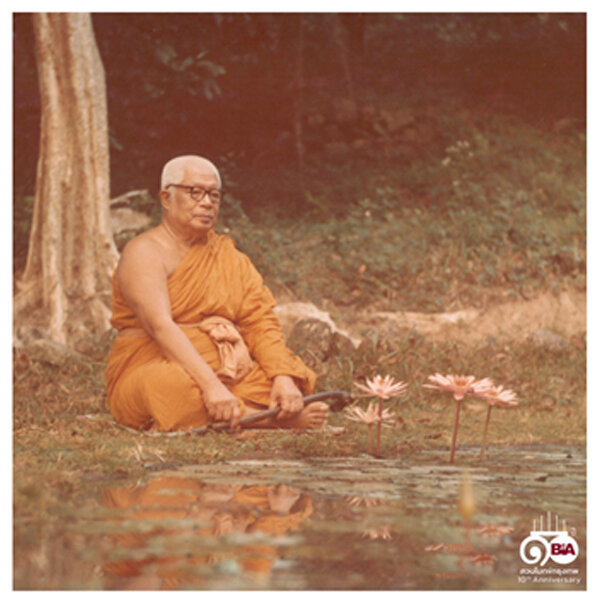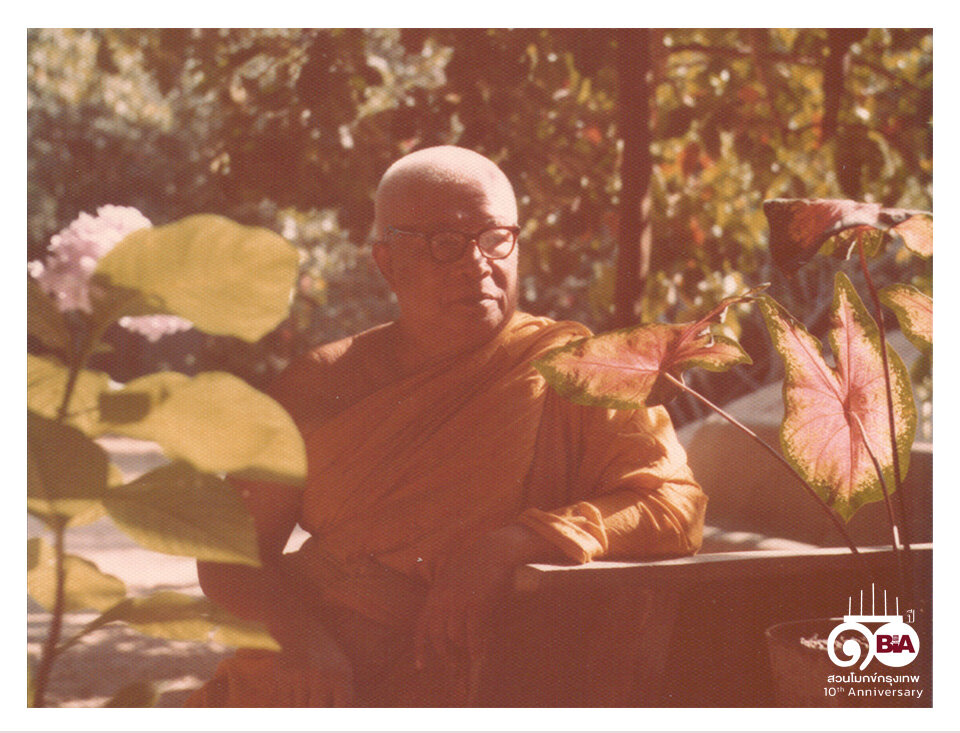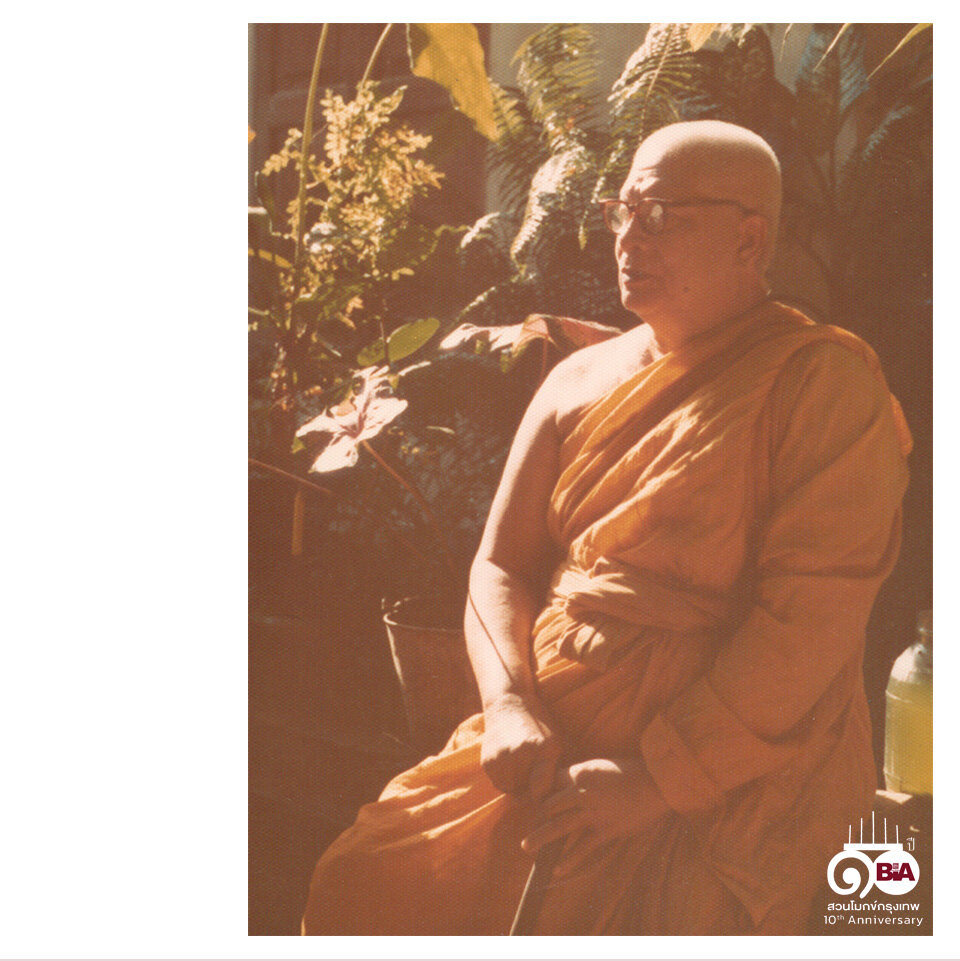

Q48. What was the Buddha’s last will and testament for us?
A will, as everyone knows, is a set of last instructions we file as death approaches. When on the point of dying, the Buddha spoke these last words, ‘All concoctions naturally decay. Perfect yourself in heedfulness!’*

Q47. What is meant by the four woeful realms?
The first of the woeful realms is hell. Hell (naraka) is anxiety (in Thai, literally, ‘a hot, agitated heart’). Whenever we experience anxiety as if our hearts are being burnt and scorched, we immediately are reborn as hell creatures.

Q46. What is it to enter the stream of Nibbāna?
Think back to the word ‘Nibbāna’ in the sense already discussed, that is, as the highest good attainable by humanity.* If, in any one lifetime, one doesn’t come to know the reality known as Nibbāna, or fails even to taste the flavor of Nibbāna, that life has been wasted.

Q45. What does really knowing something entail?
I advise and request that all students and investigators of Dhamma listen particularly to the words of the Buddha that I am about to quote.

Q44. Where can we quench suffering?
We don’t quench suffering in a monastery, in the forest, at home, or on a mountain. We have to quench suffering right in the cause of suffering itself.

Q43. Where do joy and suffering originate?
It is generally said that happiness and suffering arise from previous kamma (actions). This is the least correct answer.

Q42. How much interest do psychic powers deserve?
First of all, we shall say something about the iddhis themselves. The word iddhi means ‘power.’ It was originally an everyday word, a household term applied to things with the ability to promote success in perfectly ordinary ways.

Q41. Where is the happy destination? Where can we dwell in happiness?
In the early texts, there is a passage that speaks of celestial beings (devatā) dying, passing away, coming to the end of their merit and life spans. It also tells of their wishing to attain the happy destination, seeking for it, and wishing to know where to find it.

Q40. Where is great goodness found?
The Buddha once said, ‘Developing awareness-of- impermanence (anicca-saññā) for only as long as it takes to click the fingers has more effect and value than providing meals for the entire Saṅgha when led by the Buddha himself.’

Q39. What sort of goodness has little effect and what sort has great effect?
The Buddha taught, ‘The value of doing good that is self- serving is not worth the sixteenth sixteenth part of the value of cultivating friendliness (mettā).’

Q38. What is the world full of?
Some people with a certain outlook answer, ‘This world is full of suffering (dukkha).’ For instance, they say that only dukkha arises, only dukkha persists, and only dukkha passes away. This is correct in its own way, but it is hard to understand.

Q37. How can a murderer be awakened?
This can be answered very easily. What is called ‘the person’ (or ‘the individual’) has to be killed before being arahant. If what we call ‘the person’ hasn’t been killed, there’s no way to be arahant.

Q36. Householders can’t be awakened, can they?
Don’t give unqualified answers to this question either, saying they can or can’t. It must be answered by saying that arahants have transcended householding and monkhood alike.

Q35. Where can we meet awakened people?
We must find arahant in the end of the defilements. Don’t go searching for them in forests, in monasteries, in caves, on mountains, in villages, in cities, or in meditation centers. You can look for arahant in the ending of the defilements.

Q34. Are we able to recognize awakened people?
People like asking this very much. For instance, there are some who doubt if we could recognize an arahant now living in the world. If asked whether we could recognize an arahant if one came walking along, we should consider the following.

Q33. Is it difficult or easy to be awakened and liberated?
Almost everyone answers that it is extremely difficult. No one dares to think or speak of it as being easy. Here again, let’s keep to the principle of not giving unqualified answers. Anyone who gives unqualified answers, saying, for example, ‘there is’ or ‘there’s not,’ ‘it’s easy’ or ‘it’s difficult,’ isn’t a follower of the Buddha.

Q32. What is meant by living rightly?
‘Right living’ has a special meaning of its own. To live rightly is simply to live in ways such that the defilements (kilesa) can’t obtain nourishment nor be stirred up in any way. Hence, there’s nothing more to it than living all the time with mind free and empty (cit-waang), that is, mind that views the entire world as something empty and doesn’t clutch or grab at anything as being self or belonging to self.

Q31. Are there any awakened people in the world at this time?
This question can be answered by quoting the Buddha, ‘If bhikkhus live rightly, the world will not be empty of arahants (worthy, undefiled beings).’* He said this on the very day he died.

Q30. What is the supreme reality for humanity?
The Awakened One once said, ‘Buddhas say Nibbāna is supreme.’* Supreme means ‘the ultimate and highest good for humanity.’ In the international language of ethics, it is known by the Latin term summum bonum, the utmost goodness, the best and highest thing attainable by human beings in this very life.

Q29. Can the lower animals experience Nibbāna?
In one of his discourses, the Buddha uses the words parinibbāyati and parinibbuto in reference to animals that have been trained until their aggression and fierceness have been tamed.
